Staff and Trainees
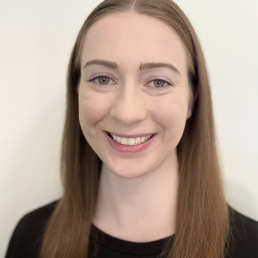
Madeline Brooks
Madeline Brooks is a PhD student in General Epidemiology and Methodology at the Johns Hopkins Bloomberg School of Public Health. She received her MPH in Public Health Practice from Thomas Jefferson University and her certificate in Spatial Analysis for Public Health from Johns Hopkins University. Her current work involves the application of place-based social and environmental indicators to studies of children’s health, HIV, and COVID-19. She also serves as a Teaching Assistant for the Spatial Analysis course series. Her research interests include spatial statistical methods and neighborhood-level determinants of chronic disease.

Roger Chen
Roger is currently in the second year of his ScM degree in Environmental Health Engineering at Johns Hopkins University. He is currently a part-time research assistant at SSPHC, where his current work includes assisting with the creation and modification of the Environmental influences on Child Health Outcomes (ECHO) dashboard as well as the data analysis and visualization for the COVID-HIV project. Roger's work is supervised by Dr. Desjardins. Roger's research interests include environmental epidemiology, spatial statistics, geostatistics, GIS, data visualization, global health, and disease burden. Roger is from Taiwan and holds a Bachelor's degree (2017) and a Master's degree (2019) from the Department of Resource Engineering, National Cheng Kung University (Advisor: Dr. Kuo-Chin Hsu). His first thesis examined the impacts of climate change on headwater catchments in Taiwan. During 2020-2022, Roger served as a full-time research assistant at the Institute of Epidemiology and Preventive Medicine, National Taiwan University. He was in charge of the burden of disease research projects related to risk factors such as PM2.5, high blood pressure, high fasting glucose, and high cholesterol, as well as establishing and maintaining the R-shiny dashboard of the burden of disease in Taiwan.

Theresa Faller
Theresa Faller is a 3rd year PhD student in the Department of Mental Health. Her research interests include Asian American health, substance use, suicide related behaviors, and the intersection of physical and mental health. She is a teaching assistant for the spatial analysis program. Before coming to Hopkins, Theresa was an injury epidemiologist studying physical injury and mental health outcomes in military populations. She holds Bachelor of Arts Degrees in Biochemistry and Asian Studies from Bowdoin College and a Master of Public Health degree from Boston University.

Pragyan "Prag" Khanal
Pragyan "Prag" Khanal is a Biostatistician with the Environmental influences on Child Health Outcomes (ECHO) Data Analysis Center (DAC) at the Johns Hopkins Bloomberg School of Public Health. He received his Master of Science in Health Informatics (Health Data Analytics Concentration) from George Mason University and his Graduate Certificate in Spatial Analysis for Public Health from the Johns Hopkins Bloomberg School of Public Health. His current work involves examining environmental exposures and the built environment to understand their relationship with various children's health conditions. His previous research work involved using spatial data, GIS, and spatial statistics to understand spatial variations of chronic and infectious diseases in a healthcare setting. He is passionate about using data visualizations and spatial statistics to improve population health outcomes.
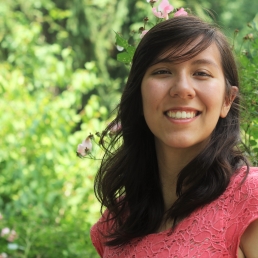
Amanda Luken
Amanda Luken is a 4th year PhD student in the Department of Mental Health and the Drug Dependence Epidemiology Training Program. She received her Masters in Health Science (2020) from the Department of Mental Health and completed her Bachelors in Science in Biology with minors in Mathematics and International Affairs from Northeastern University. She also completed the Mental Health Policy, Economics and Services Certificate Program during her Masters. Her research interests include health policy for adults with co-occurring mental and substance use disorders, just-in-time-adaptive interventions for behavioral health conditions, and racial disparities in child maltreatment substantiation and reporting. Amanda currently works with Dr. Desjardins to create geofences for a smoking cessation ecological momentary intervention.

Cara Wychgram
Cara Wychgram received her Master of Environmental Policy from the University of Maryland, College Park and completed coursework in GIS, spatial statistics, and remote sensing at the Bloomberg School and Towson University. Her projects at SSPHC include the Johns Hopkins Lyme and Tickborne Diseases Dashboard. She is also a teaching assistant for the spatial analysis program through the Online Program in Applied Learning. Previously, Cara was involved in food systems research at the Johns Hopkins Berman Institute of Bioethics as well as capacity building and impact evaluation at the University of Maryland Joint Institute for Food Safety and Applied Nutrition.
Past Staff and Trainees
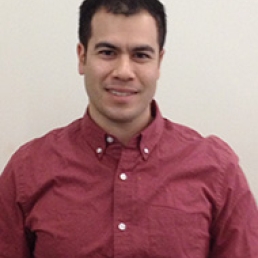
Jesse Berman, PhD
Jesse graduated with a PhD in Environmental Health Sciences from JHSPH in 2013 under the guidance of Dr. Frank Curriero. He is an environmental epidemiologist whose research focuses on complex environmental exposures and their impact on health. He has particular interests in exposure to air pollution and extreme weather events. He has a strong focus on spatial statistics and utilizes this tool heavily in his research. Jesse recently completed a postdoctoral fellowship with Dr. Michelle Bell at Yale School of Forestry and Environmental Studies, where he investigated the association between drought and adverse health in the western United States. He completed an additional postdoc with Dr. Kirsten Koehler in Environmental Health Sciences and Dr. Frank Curriero in Epidemiology at JHSPH. His research used spatial statistics to optimize air pollution monitoring networks for better estimation of exposures in both occupational and ambient environments. He also investigated how environmental and neighborhood factors influence academic performance among Baltimore City school children. Jesse is currently an Assistant Professor in the Division of Environmental Health Sciences at the University of Minnesota School of Public Health. In his new position, Jesse is continuing environmental exposure research and developing GIS and applied spatial statistics courses to serve the U of Minnesota public health community.
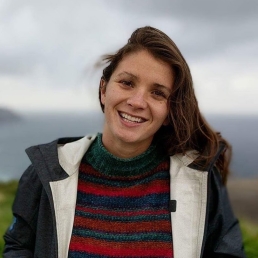
Anne E Corrigan, MS
Anne Corrigan received her Masters of Science in Environmental Sciences and Engineering from the University of North Carolina's Gillings School of Global Public Health. While working as an ORISE fellow at the Environmental Protection Agency, she researched the impacts of air pollution on public health and helped launch Smoke Sense, a citizen science initiative to exchange and understand information about exposure and response to wildfire smoke. Currently, Anne is interested in applying GIS and spatial analysis to a wide variety of environmental and public health issues to serve the community. She also serves as a teaching assistant for the spatial analysis curriculum for the Online Program in Applied Learning available through the Department of Epidemiology. She is originally from Vienna, VA and holds a BS in Environmental Science from UNC Chapel Hill.
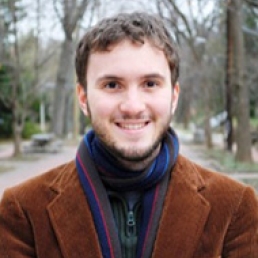
Ben Davis, PhD
Ben Davis is a Senior Scientist in the Center for Chemical Regulation & Food Safety at Exponent, Inc. He was previously a research associate at SSPHC where he was involved in projects related to spatial-temporal modeling of infectious diseases in the environment and their applications to the U.S. food system. Ben’s current work includes preparing risk and safety assessments for food contaminants and additives as well as providing statistical expertise to a number of projects across Exponent. Ben remains involved in SSPHC research, particularly on a project aiming to quantify the spatial-temporal variation of Vibrio parahaemolyticus and associated health risks among shellfish consumers in the United States.

Michael Desjardins, PhD
Michael R. Desjardins received his PhD in Geography from the University of North Carolina at Charlotte in December of 2019 (advisor: Dr. Eric M. Delmelle). His dissertation is titled “A mixed-methods approach for vector-borne disease surveillance in Colombia”. Desjardins’ research interests include spatial epidemiology, spatial statistics, geostatistics, GIS, geovisualization, global health, and mixed- methods approaches. He has published numerous peer-reviewed articles in journals such as Acta Tropica, International Journal of Geographic Information Science, PLoS Neglected Tropical Diseases, Scientific Reports, The Lancet Region Health, and others; and has also published a variety of book chapters regarding spatial statistics and geospatial health methodologies. Desjardins has also presented his research at a variety of regional, national, and international conferences. Furthermore, he has taught courses on Fundamentals of Geographic Information Systems and Medical Geography during his tenure at UNC-Charlotte and co-instructs courses in the spatial science for public health curriculum at Hopkins. He has served as a reviewer for numerous scientific journals and currently serves as chair of the American Association of Geographers’ Health and Medical Geography Specialty Group (HMGSG). Desjardins’ postdoc research includes predictive modeling to examine the dynamics and human health risks of Vibrio parahaemolyticus bacteria in estuarine environments, COVID-19, cancer epidemiology, smoking cessation, among other projects. He is supervised by the Center’s director, Frank Curriero. He is originally from Waterbury, Connecticut and holds a Bachelor’s in Geography and GIS Certificate from Keene State College (2014), and Master’s in Geographic Information Science and Technology from UNC-Charlotte (2016).

Brendan Fries, ScM
Brendan Fries received his Masters of Science in Epidemiology degree from the Johns Hopkins Bloomberg School of Public health with a focus on Infectious Diseases. His current work involves using GIS and spatial analysis to inform seafood health safety in Washington state. He also works on developing geospatial models and mapping to inform malaria research in southern Zambia with the Southern & Central Africa ICEMR at Johns Hopkins and the Malaria Modeling Consortium at the Institute for Health Metrics and Evaluation in Seattle, WA. His previous research involved Bayesian disease modeling of Chikungunya and Zika in the Caribbean. He is originally from Phoenix, Arizona and received his Bachelors from Arizona State.

Amy Hong, MHS
Amy Hong received her Bachelor of Arts in Public Health and Economics from the Johns Hopkins University. Amy then completed a Masters of Health Science in the Department of Epidemiology under the guidance of Dr. Frank Curriero, working on a project evaluating geographic differences in U.S. newborn male circumcision rates. As an undergraduate, she researched global tobacco control efforts with the Institute for Global Tobacco Control at the Johns Hopkins Bloomberg School of Public Health and researched MERS-CoV with the geospatial team at Institute for Health Metrics and Evaluation in Seattle, WA. Amy is particularly interested in epidemiologic and statistical methods for analyzing public health questions. She also serves as a teaching assistant for biostatistics at JHSPH and undergraduate epidemiology at Homewood.
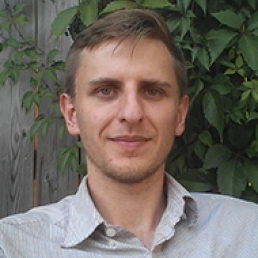
Anton Kvit, ScM
Anton Kvit received his Masters of Science in Epidemiology from the Johns Hopkins Bloomberg School of Public Health focusing on the study of environmental factors and malaria incidence in Zambia as well as healthy food availability in Baltimore in collaboration with the Center for a Livable Future. His current work involves the application of spatial statistics and GIS methods to a wide range of public health projects relating to infectious and chronic diseases and community health in the United States. He also serves as a Teaching Assistant for several spatial analysis courses through the Online Program in Applied Learning and taught a spatial statistics seminar abroad. His interests include statistical, epidemiologic, and GIS methodology, interactive data visualization, and mHealth.
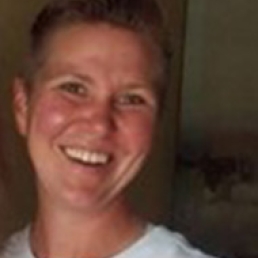
Kelly Searle, PhD
Kelly Searle was a post-doctoral fellow in the department of Epidemiology. She obtained her ScM from Johns Hopkins Bloomberg School of Public Health, Department of Epidemiology where she investigated the efficiency of reactive case detection for malaria elimination, and later her PhD describing the epidemiology of malaria and threats to achieving elimination. Her primary research interest has been in malaria transmission dynamics, specifically in areas transitioning from malaria endemicity to approaching malaria control. Through this work, she has integrated traditional epidemiologic methods with molecular sciences, and spatial analyses and GIS. She also worked on U.S. studies to detect spatial hotspots of obesity, and other adverse health outcomes using large, national datasets, and done analyses to investigate factors associated with these spatial hotspots.
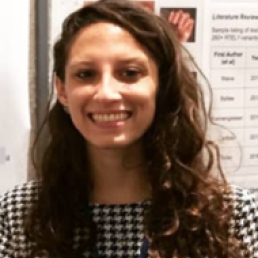
Maya Spaur, ScM
Maya Spaur completed her Master of Science in Environmental Health & Engineering at Bloomberg School of Public Health. Her research worked to identify inputs for a quantitative microbial risk assessment of Vibrio parahaemolyticus in raw oysters. While at Hopkins, she also completed the certificate in Risk Sciences and Public Policy. She served as President of the Johns Hopkins Science Policy Group, as a research assistant for Dr. Meghan F. Davis, and was a teaching assistant for the Risk series.

Stacy Woods, PhD
Stacy Woods (MPH '10, PhD '16) is a staff scientist at the Natural Resources Defense Council (NRDC), a leading environmental not-for-profit organization. Stacy serves as NRDC’s in-house expert and scientific resource in analytical design, statistical analysis, GIS and data visualization to support NRDC’s environmental research, advocacy and litigation. Her own research employs spatial statistics to analyze diverse environmental health issues, from air pollution in the northeastern U.S. to pesticide runoff in Florida. Prior to joining NRDC, Stacy worked for the U.S. Environmental Protection Agency (US EPA), and she was a Mirzayan Science and Technology Policy Fellow at the National Academy of Sciences (NAS). Stacy holds a PhD in Environmental Health Sciences and a Master of Public Health from the Johns Hopkins Bloomberg School of Public Health, where she was a Brown Scholar in Community Health. She is based in Washington, DC.
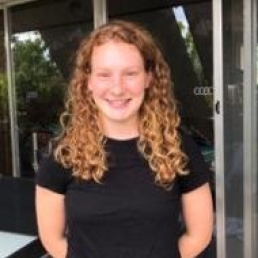
Chloe Wynn, BS
Chloe received her Bachelors of Science in Geography and Environmental Planning from Towson University Honors College in December 2018. She completed an internship with the Spatial Science Center at the Johns Hopkins Bloomberg School of Public Health in the summer of 2018. As her first internship in the field, she learned more about cleaning and integrating databases and using ArcGIS more proficiently. She received valuable insight about the value of spatial analysis in exploring and solving current public health problems. She also worked in the Writing Center at Towson University during her undergraduate career where she learned the importance of clear and concise written communication. She hopes to receive higher education and further explore environmental conservation as well as environmental health.
